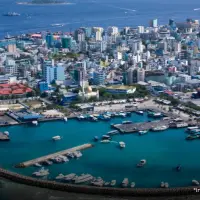The Maldives, renowned for its stunning landscapes, crystal-clear waters, and luxurious resorts, has become an attractive destination for foreign property investors. If you’re considering buying property in this tropical paradise or investing in Maldives, it’s essential to understand the regulations, restrictions, and investment options available to foreigners considering real estate in the Maldives.
Overview of Foreign Property Ownership in the Maldives
Foreign ownership of property in the Maldives is permitted under specific terms. However, the regulations can be quite unique compared to other countries, reflecting the Maldives’ commitment to maintaining its natural environment and cultural heritage.
Real Estate Business Regulations in the Maldives
Maldives has become a destination for real estate developers and individual investors alike. Attractive Maldives property prices are a big draw, but investors must be mindful of regulations before making their moves. Foreign nationals, for example can’t just up and decide they want to buy a flat for sale in the Maldives.
1. Types of Maldives Properties for Sale:
Foreigners are generally allowed to purchase leasehold property. This means you can acquire property for a fixed term, typically up to 99 years. There is no outright freehold ownership for foreign nationals as the land in the Maldives is owned by the state.
2. Investment Criteria:
- To purchase property, foreigners must invest a minimum amount, which varies depending on the type of property.
- For real estate developers, the minimum investment is often set by the government, generally starting at around USD 1 million for hotel and resort projects.
- USD 100 million: Minimum investment for projects in sectors such as export-oriented manufacturing, international logistics, ICT parks, renewable energy, and healthcare.
- USD 500 million: Minimum investment for sustainable township development projects.
3. Approval Process:
All foreign property purchases require approval from the Maldivian government. This helps ensure that the investment aligns with national interests, particularly regarding sustainability and local development.
4. Ownership Limits:
Foreign nationals can only own property that is classified as “luxury” or “high-end.” This typically includes resort and hotel developments, as well as commercial properties in designated tourism zones. This is why Maldives villa ownership is a popular trend among foreign nationals.
Restrictions
1. Leasehold Agreements:
While leasehold agreements can be extended, foreign investors must be aware of the potential challenges in renewing leases upon expiration. It's essential to keep this in consideration during your investment planning.
2. Use of Property:
Properties purchased by foreigners usually serve commercial purposes; residential ownership options are limited. This means that buying a property in Maldives for sale for personal use, such as a vacation home, might not be feasible under current regulations.
3. Investment Focus:
The Maldives government prefers investments that contribute to the local economy, such as tourism-related developments. Non-tourism investment by foreign nationals is heavily regulated.
Investment Options
Investing in the Maldives offers several avenues for foreigners:
1. Resort Development:
Many foreign investors choose to develop luxury resorts. The island's tourism sector is robust, making it an appealing option for foreign investment in the Maldives. Furthermore, luxury property in the Maldives tends to be quite popular with tourists.
2. Condominium Projects:
Limited condominium developments offer a potential pathway for foreign buyers, although these are usually tied to specific tourism projects and come with strict regulations. Specific condominium projects, such as the Maldives Floating City, are being developed with sustainability in mind. This project aims to house approximately 20,000 residents in eco-friendly floating homes and structures that rise with the ocean.
3. Commercial Properties:
Foreign investors can engage in commercial real estate ventures, including retail spaces in tourist areas. The Maldives offers various investment opportunities in sectors like tourism, real estate, renewable energy, infrastructure, fisheries, and agriculture.
Investing in commercial properties, such as retail spaces in tourist areas, can be a viable option for foreigners looking to tap into the lucrative tourism market.
4. Joint Ventures:
Partnering with local businesses or investors can provide a way to navigate the regulatory landscape more effectively, leveraging local knowledge and resources. The Maldives' Foreign Direct Investment Policy outlines that certain sectors require joint ventures with Maldivian partners, while others allow up to 100% foreign ownership.
Conclusion
While the Maldives presents a stunning landscape for potential property investment, foreign nationals must navigate a complex regulatory environment. By understanding the rules, restrictions, and available investment options, investors can make informed decisions and explore opportunities in this beautiful island nation. Always consult with a local legal advisor or real estate expert to ensure compliance with the current laws and regulations before making any investment. This will not only help you safeguard your investment but also support sustainable development in the Maldives.
Buying property in the Maldives can be a rewarding experience, allowing you to enjoy the natural beauty of the islands while contributing to the local economy.
Disclaimer: The contents of this blog are provided by a third-party vendor on behalf of Tata Housing. All rights, including copyright, to the content within this blog remain the sole property of Tata Housing. The information and opinions expressed in the blog posts are those of the third-party vendor and do not necessarily reflect the views or opinions of Tata Housing. While, we strive for accuracy and quality, we do not guarantee the completeness, accuracy, or reliability of the information presented in these blog posts. Readers are encouraged to consult additional sources and exercise their own judgment when interpreting or implementing any information found in this blog. Tata Housing is not responsible for any actions taken based on the information provided in these blog posts, and we disclaim any liability for errors, omissions, or consequences arising from the use of this content.





